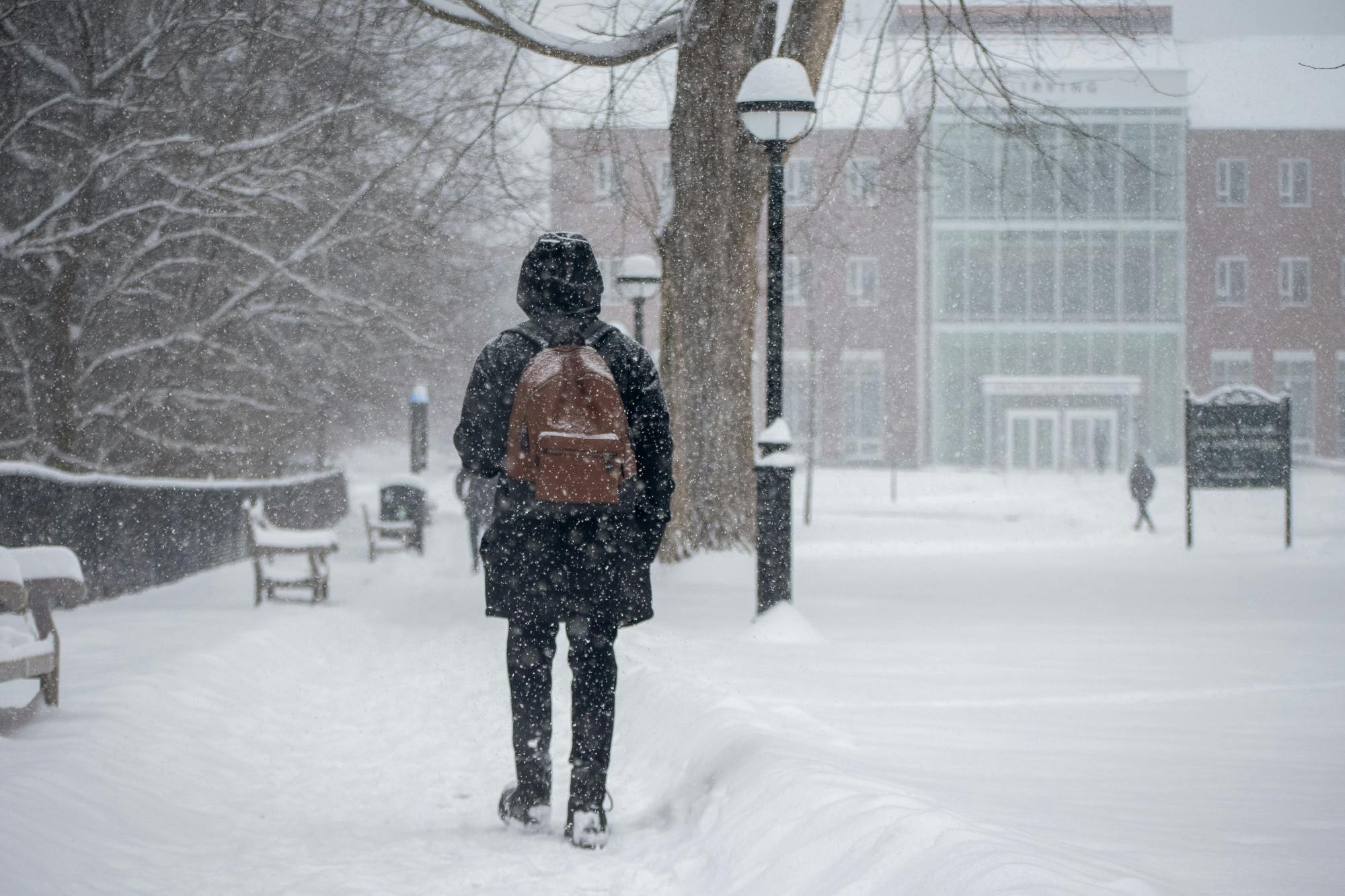The time has come when days get shorter and daylight becomes scarce. Unsurprisingly, these changes in our environments can drastically affect our mood. While it may be easy to succumb to gloominess and stay cooped up all the time, there are better ways to combat feeling down.
Johns Hopkins Medicine explains that Seasonal Affective Disorder, also known as SAD, is a type of depression that manifests seasonally, typically during the fall and winter. Shorter days and less sunlight exposure can alter the chemistry of the brain, leading to symptoms such as increased sleep and daytime drowsiness, loss of enjoyment in previous interests and increased sensitivity to rejection. According to the American Psychiatry Association, about 5 percent of adults in the U.S. experience SAD. However, the APA’s (APA) Healthy Minds Monthly poll found that declining mood can affect 38% of Americans during winter, emphasizing the impact the winter months can have on a large part of the population.
Associate Director of the Counseling Center Alex Lenzen recognized the effect that this change in daylight can have on students.
“It looks a lot like other types of depression where a person will feel down, lose interest in activities they typically enjoy, maybe have sleep disturbances, lack energy, withdrawal from other people, etc.,” Lenzen said.
While SAD typically affects older people more than it affects college students, Caroline Conway ’24, co-president of the Mental Health Union, points out that the College’s location in Hanover combined with the rigorous Dartmouth academic schedule can lead to intense stress and social isolation.
“People don’t want to leave their houses unless they have to,” Conway said. “It’s brutal outside — it’s sometimes proper work to get all geared up to go outside and to actually meet with people.”
Melatonin, a hormone that regulates and promotes sleepiness in response to darkness, also plays a huge role in SAD. Longer periods of darkness in fall and winter can prompt the brain to create too much melatonin, according to Johns Hopkins Medicine. For college students, who notoriously struggle with poor sleep habits, this overproduction of melatonin can lead to SAD.
Lenzen noted, “Maybe for a person not sleeping that much, … not getting the rest that we would typically recommend … might exacerbate some of those fatigue symptoms.”
TJ Parekh ’24, a Mental Health Union Ambassador, said he believes it’s important for the College to take initiative to create policies and encourage practices that accommodate students who are struggling with their mental health.
“[It’s important to have] teachers who are well-versed in mental health issues — not just that little paragraph in the syllabus, but translating [that] into real life [by] being more flexible with deadlines, more flexible with exams, especially in the wintertime when a lot unforeseen circumstances may arise,” said Parekh.
Winter can also be an especially “harrowing” time for upperclassmen, said Parekh because they have witnessed their classmates struggle due to mental health in previous years.
“We’ve lost some of our classmates due to suicide, or seen classmates experience heightened mental health issues,” he said. “And I think the College has begun to do a better job in regards to [addressing mental health], but still I think there needs to be continued effort toward advocating around student issues.”
To encourage students to socialize, the College offers many indoor programming events, Conway said. On Jan. 5, for example, Collis After Dark hosted hypnotist Brian Imbus at Collis Common Ground. Parekh also pointed out that the Dartmouth Outing Club is hosting “fun Fridays” with hot cocoa and skiing.
“Having more of that encouraging community, encouraging free things for students, that just alleviate the burdens of the day-to-day, are really, really important, especially now,” said Parekh.
The obvious ways to mitigate seasonal depression are habits we have all heard of. “Moving our bodies, nourishing our bodies and getting good sleep” are a few that Lenzen named. Positive self-talk and being kind to ourselves is also important, and often overlooked, Lenzen added.
Students at Dartmouth also have access to affordable sun lamps through the Counseling Center’s Sun Lamp Loaner Program. A sun lamp is a special light made to mimic the light you would get from being outdoors. Different from normal lamps, sun lamps emit intensive light that improves the symptoms of SAD, depression and circadian rhythm problems.
According to the Counseling Center, sun lamps are available for loan to provide light therapy, which a student may have for one to two weeks at a time, depending on demand. The increased light exposure “tricks” the brain into producing sufficient serotonin and melatonin. Lenzen also mentioned that if people are interested in having their own, they are available for purchase online.
However, even with the studied benefits of self-care and sun lamps, Dartmouth students often turn to partying during the winter as a popular way to destress, especially given the limited options in winter. Parekh said that while it may be difficult to prevent students from partying, it’s important to remember to remind them to take care of themselves while doing so.
“A lot of people turn toward Greek spaces to do fun but not sustainable stuff,” said Parekh. “If you need to do that, who am I to judge, but let’s also remember physical and emotional well-being’s correlation to each other.”
Lenzen also mentioned that avoiding substances could help boost one’s mood. Studies show that avoiding the consumption of alcohol can lead to a reduction in depressive symptoms.
“Alcohol is a depressant,” she said. “So if you're feeling depressed, oftentimes that can exacerbate symptoms.”
No matter your approach to dealing with the mood changes brought on by the cold temperatures, there’s no doubt that winter in Hanover can be difficult. However, even with early sunsets and cold winds, there’s a wide network of College and student-run resources that are here to help. Reach out if you are struggling — there are people here for you.




